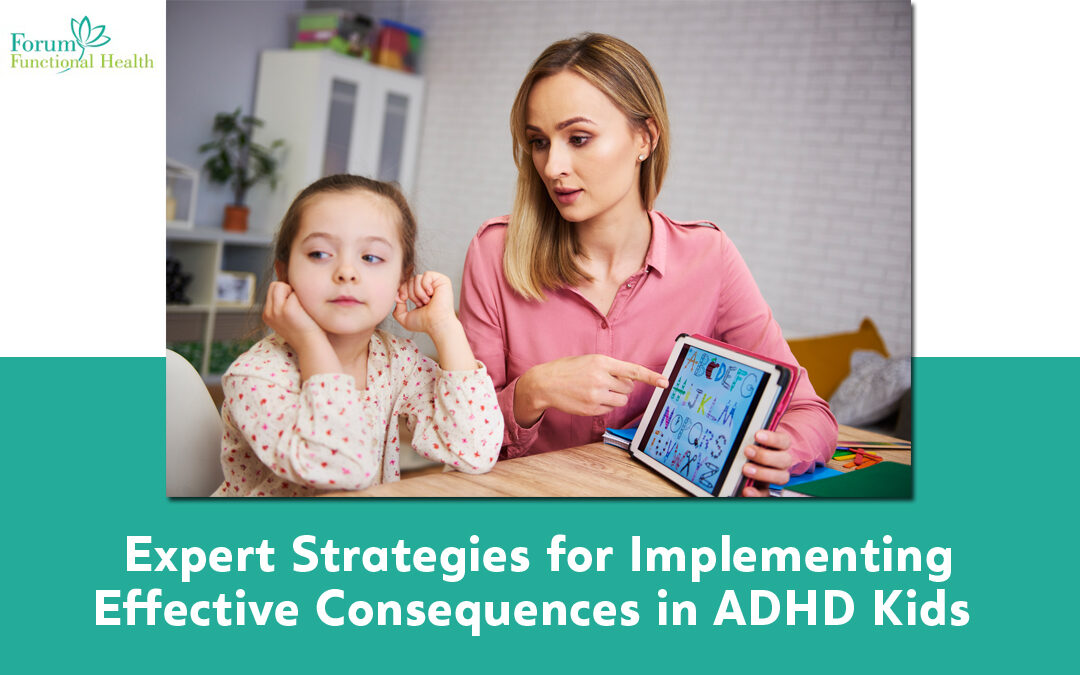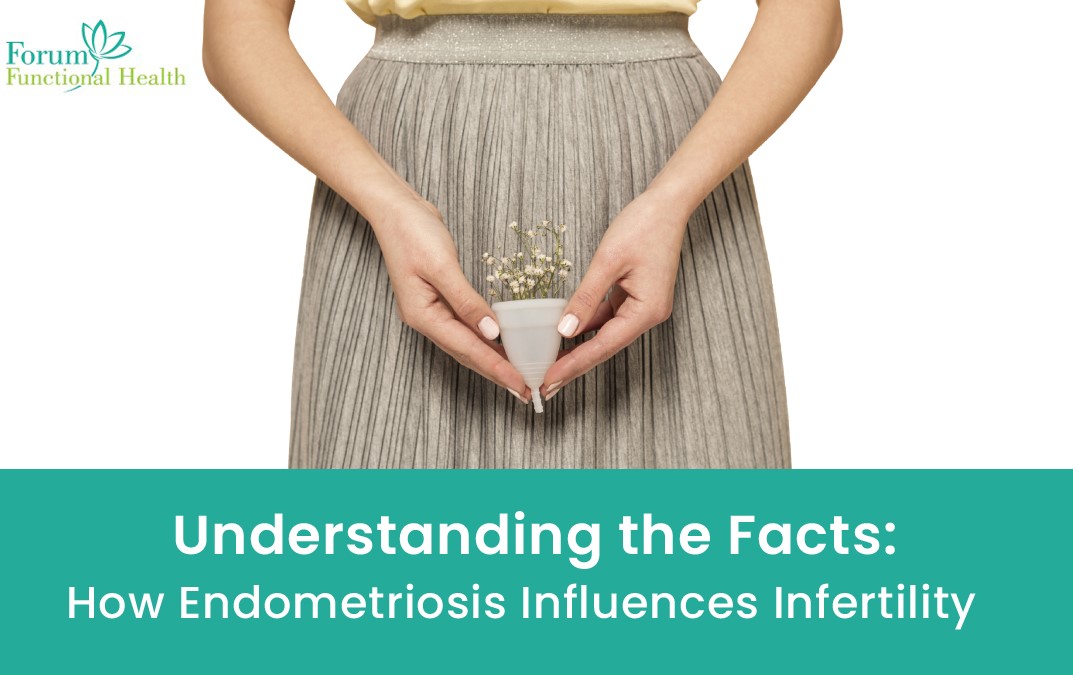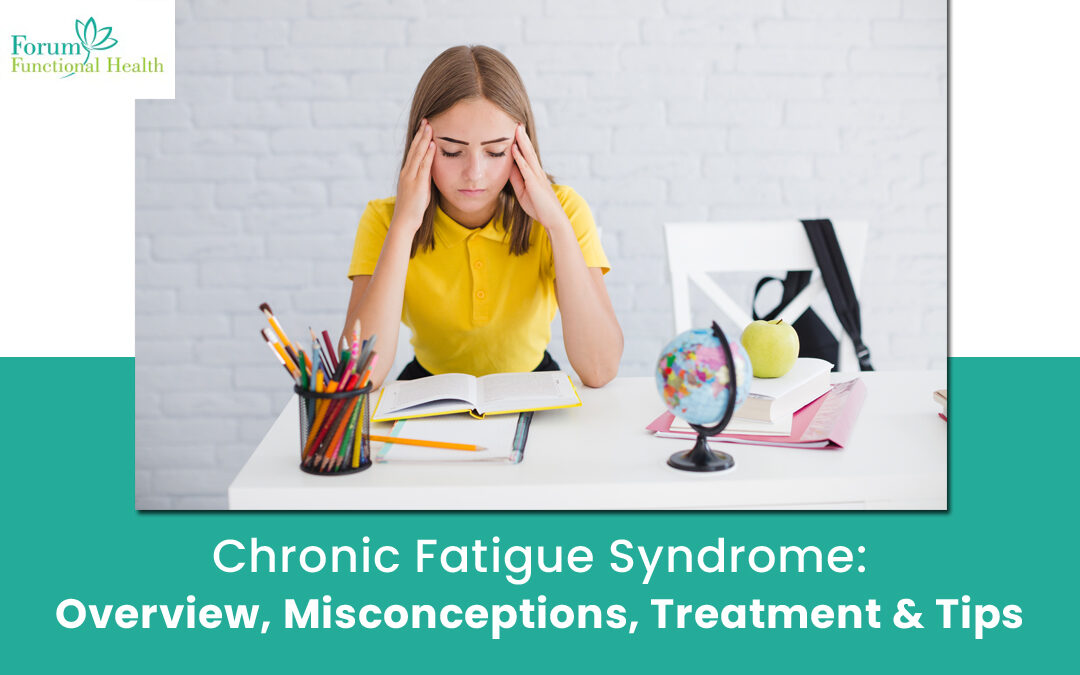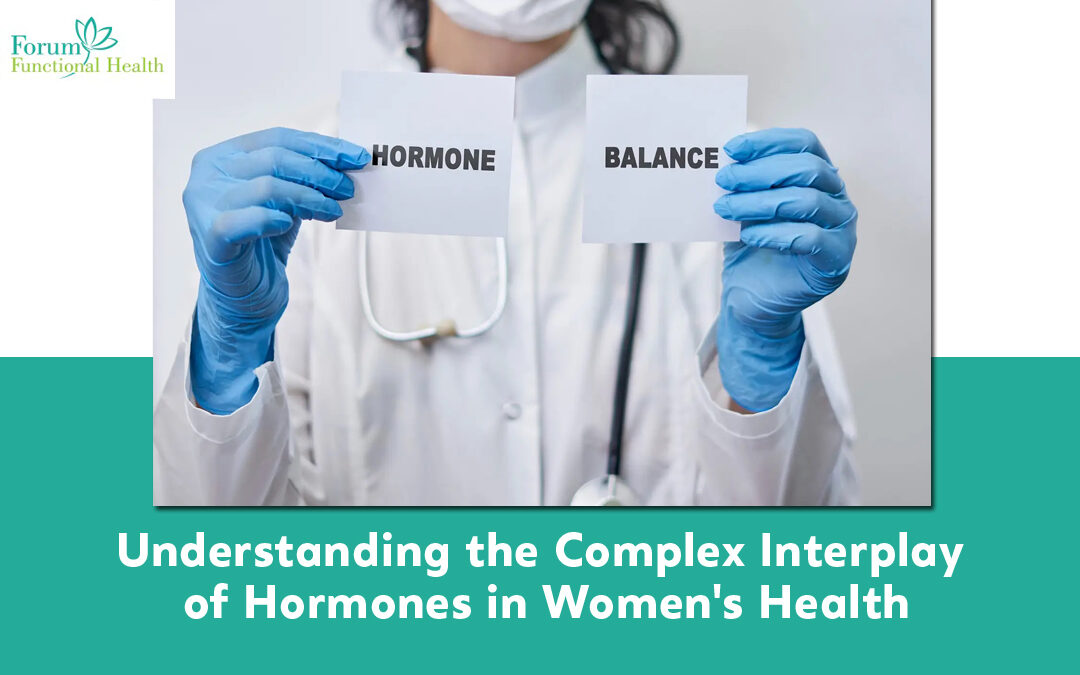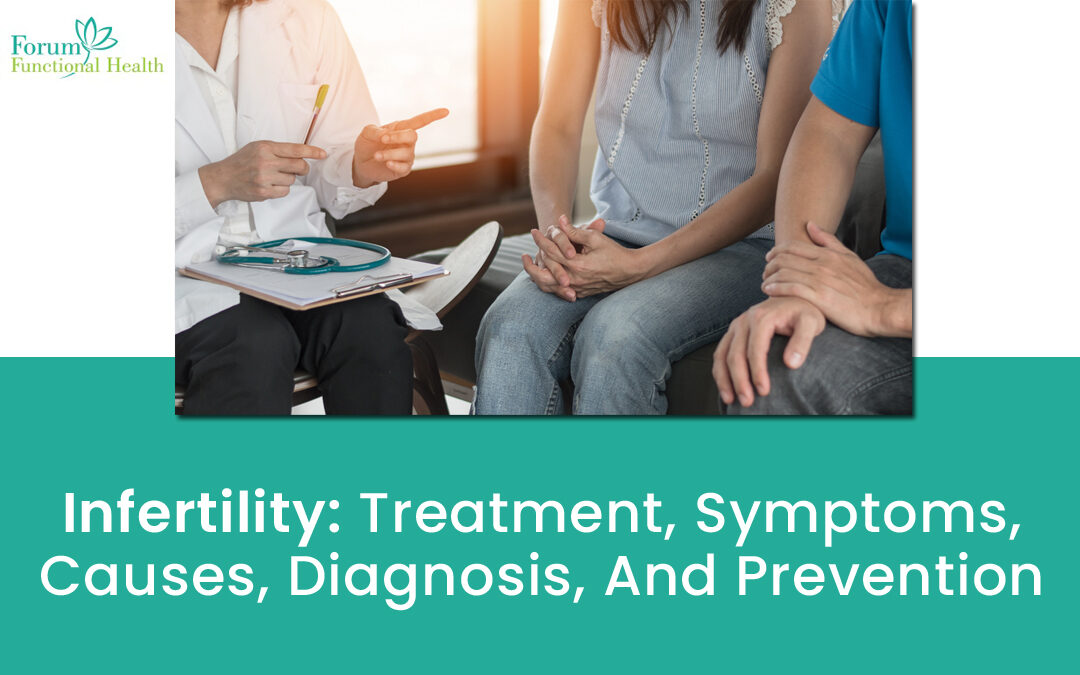
by Forum Functional Health Center | Jan 16, 2024 | Menopause & Perimenopause
Menopause is a natural phase in a woman’s life, marking the end of reproductive years. Beyond the well-known symptoms such as hot flashes and mood swings, menopause also brings about significant changes in metabolism. In this comprehensive guide, we will delve into the intricacies of how menopause affects your metabolism and provide insights on maintaining a healthy lifestyle during this transitional period.
Metabolism Basics
Let’s start with a basic understanding of metabolism before delving into the specific changes that occur during menopause. Metabolism is the complex process by which your body turns nutrients from food and drinks into energy. This energy is required for a variety of body activities such as breathing, circulation, and cell repair.
Hormonal Shifts
The primary driver behind metabolic changes during menopause is the hormonal shift that occurs. As estrogen levels decline, which is a hallmark of menopause, the body experiences a series of adjustments. Estrogen plays a crucial role in regulating metabolism, and its reduction can lead to changes in how the body processes and stores energy.
Slowed Metabolic Rate
One of the key changes is a gradual decline in the metabolic rate. The basal metabolic rate (BMR), representing the energy expended at rest, tends to decrease. This means that the body requires fewer calories to maintain its basic functions, which can contribute to weight gain if dietary habits are not adjusted accordingly.
Redistribution of Fat
Menopause often brings about a shift in fat distribution. While women might have previously stored fat in the hips and thighs, there’s a tendency for fat to redistribute to the abdominal area during this stage. Abdominal fat is metabolically active and linked to an increased risk of chronic diseases, making it crucial to adopt strategies to manage weight effectively.
Muscle Mass and Strength
Another aspect influenced by hormonal changes is a decline in muscle mass and strength. Estrogen plays a role in maintaining muscle tissue, and as its levels decrease, women may experience a reduction in muscle mass. This can impact overall metabolic health, as muscles are essential for burning calories and maintaining metabolic efficiency.
Insulin Sensitivity
Menopause can also affect insulin sensitivity, the body’s ability to respond to insulin and regulate blood sugar levels. Reduced estrogen levels may contribute to insulin resistance, potentially leading to higher blood sugar levels. This emphasizes the importance of adopting a balanced diet and regular exercise to manage insulin sensitivity and prevent the onset of conditions like Type 2 diabetes.
Strategies for a Healthy Metabolism during Menopause
Balanced Nutrition: Prioritize a well-balanced diet rich in whole foods, including fruits, vegetables, lean proteins, and whole grains. Adequate calcium and vitamin D intake become crucial for maintaining bone health.
Regular Exercise: Engage in regular physical activity, including both aerobic exercises and strength training. Exercise not only helps manage weight but also supports muscle mass and overall metabolic health.
Adequate Hydration: Staying well-hydrated is essential for metabolic processes. Water supports digestion, nutrient absorption, and overall cellular function.
Mindful Eating: Pay attention to portion sizes and practice mindful eating. Listening to your body’s hunger and fullness cues can prevent overeating and support weight management.
Entering perimenopause and menopause marks the end of one’s reproductive years, providing transitional phases that can be managed more pleasantly with the multitude of current treatments. At Forum Functional Health Center, we recognize the importance of assisting clients who are having symptoms at these times. Our center is dedicated to assisting persons in adjusting to these changes by providing solutions that improve comfort and bring a sense of greater freedom.
Understanding the metabolic changes that occur during menopause is central to our approach at Forum Functional Health Center. We believe in empowering women to manage this period of transition with confidence and knowledge. We try to maximize metabolic health with a holistic approach that includes a balanced diet, regular exercise, and lifestyle changes. Women who adopt these measures can not only manage with the problems of menopause metabolic changes, but also contribute to a healthier and more satisfying life after this transitional phase.

by Forum Functional Health Center | Jan 12, 2024 | Digestive Health
The gut has an important but frequently overlooked function in the larger context of our general health. Our health is largely dependent on this complex system, which breaks down the food we eat every day. Let’s take a look at some easy ways to take care of your gut health and discuss how important it is to maintain it.
Understanding the Gut is More Than Just Digestion
The digestive system, often known as the gut, is a complex system that includes the stomach, small intestine, and large intestine. Its primary function is to digest the food we consume, absorbing the nutrients we need and removing waste. However, its importance goes beyond digestion.
The microbiota of the gut is a thriving population of bacteria that live within the gut. Fungi, viruses, and bacteria interact in this microscopic environment to influence numerous elements of our health. A diversified and balanced gut bacteria is linked to better digestion, a stronger immune system, and even our mental health.
The Link between Gut Health and Overall Wellness
Maintaining a healthy gut is not just about avoiding digestive discomfort; it is a cornerstone of overall wellness. Various factors, such as diet, lifestyle, and antibiotic usage, can influence the delicate balance of the gut microbiota. When this equilibrium is disrupted, it can lead to a myriad of health issues.
Digestive disorders like irritable bowel syndrome (IBS) and inflammatory bowel disease (IBD) are often rooted in an imbalanced gut. Yet, the effects of gut health transcend the digestive realm. Emerging research suggests connections between an unhealthy gut microbiota and conditions like obesity, diabetes, and mental health disorders.
Simple Steps for a Healthy Gut
Now that we grasp the importance of maintaining gut health let’s delve into practical steps to support its well-being:
1. Increase Your Diet: Look for a balanced, comprehensive diet rich in whole grains, fruits, vegetables, and lean proteins. The gut microbiota is diverse due to the many types of bacteria that are nourished by different diets.
2. Add probiotics: Beneficial bacteria, or probiotics, have a good effect on the gastrointestinal tract. You may easily include probiotic-rich foods like yoghurt, kefir, sauerkraut, and kimchi in your diet.
3. Fiber-Rich Foods: Fibre feeds the helpful gut bacteria that aid with digestion, making it an unsung hero. To support a healthy gut, include nutritious grains, beans, lentils, and fruits in your daily meals
4. Stay Hydrated:
Adequate water intake is crucial for maintaining gut health. Water aids in breaking down food and supports the overall digestive process.
5. Limit Processed Foods and Sugars:
Highly processed foods and excessive sugar can disrupt the balance of gut bacteria. Opt for whole, unprocessed foods to bolster a healthier gut environment.
6. Manage Stress:
Chronic stress can throw off the delicate balance of the gut microbiota. Incorporate stress-reducing activities like meditation, deep breathing, or regular exercise into your routine.
7. Avoid Overuse of Antibiotics:
Antibiotics, while valuable in treating infections, can upset the balance of gut bacteria. Use them judiciously under the guidance of a healthcare professional, and ensure you complete the prescribed course.
In brief, maintaining a strong gut is a simple and effective technique for improving your overall health. We may harmonise with the delicate dance of the gut bacteria by making careful choices in our daily routines and food preferences. A healthy gut not only supports efficient digestion but also strengthens our immune systems and ads to a more positive mental outlook.
It’s important to emphasise that these changes don’t have to be radical; even minor modifications in our everyday routines can result in big gains in gut health. So, set out on the route to a healthier gut now, opening the door to a more vibrant and joyful version of yourself. Your gut is the foundation of your health.
Here at Forum Functional Health Center, we delve into the comprehensive evaluation of the three primary body systems: hormonal, gastrointestinal, and detoxification. Through our practice, we frequently witness the intricate interplay between these systems. They are not solitary actors; their functioning intricately influences one another.
It’s a common observation in our practice that when one of these systems is not operating at its best, the others are inevitably affected. The interdependence of these systems underscores the importance of a holistic approach to health. If you’re seeking assistance in assessing and optimizing all three main body systems for the pinnacle of health you aspire to achieve, we invite you to reach out to our office today. Schedule an appointment, and let’s embark on a journey towards your optimal well-being together. Your health is our priority, and we’re here to guide you on this transformative path.

by Forum Functional Health Center | Jan 11, 2024 | Children with Hyperactivity & ADHD
Children with Attention Deficit Hyperactivity Disorder (ADHD) and those who look after them face unique problems in managing the condition. Behavioural strategies must be strategically applied in order to manage ADHD since they provide structure and foster healthy development. This article explores the use of behavioural strategies and, more especially, consequences that are carefully tailored to create an environment that supports the success of kids with ADHD.
Understanding ADHD and Behavioural Challenges
Attention Deficit Hyperactivity Disorder, or ADHD, is a condition that can affect both adults and children. It causes difficulties with organisation, attention, and impulse control, which can have an influence on social relationships and academic achievement, among other aspects of life.
It’s critical to offer kids with ADHD consistent and understandable behavioural tactics. These ought not to be harsh; rather, they ought to be guidelines for developing success-critical abilities. Effective behaviour and emotional regulation in children can be taught through the implementation of routines, expectations, and positive reinforcement.
Managing ADHD requires a structured atmosphere, which must be established. This entails keeping a regular daily schedule and providing a space set aside for work or study that is distraction-free. Tasks can be completed more successfully and with greater attention when broken down into smaller, more manageable steps. This helps to create an environment that is more regulated and organised.
Teaching self-regulation skills to those with ADHD is equally important. They are empowered to regulate impulsivity and improve attention span through practices including deep breathing exercises, mindfulness, and creating attainable goals. Task attention and decision-making abilities are gradually enhanced by the regular application of these techniques.
Creating a supportive environment
The first step in implementing behavioural tactics successfully is to create a supportive atmosphere. Children with ADHD feel more secure when there are clear expectations and consistent routines in place. Encourage a well-organised daily schedule that provides regularity to help reduce stress and impulsivity.
Adapting Penalties to ADHD
A key element of behavioural strategies is consequences. On the other hand, it’s critical to adjust punishments to the specific needs of the child when dealing with ADHD. Put more emphasis on consequences that foster self-awareness and learning than on punitive actions.
Adapting Discipline to ADHD Kids
A key element of behavioural strategies is consequences. On the other hand, it’s critical to adjust punishments to the specific needs of the child when dealing with ADHD. Put more emphasis on consequences that foster self-awareness and learning than on punitive actions.
Positive Reinforcement: Create a system of rewards to incentivize good behaviour. Employ a token or point system so that the child can receive incentives for finishing activities or acting in a way that is suitable. This encouraging feedback fosters self-assurance and motivation.
Time-Outs with Reflection: When disruptive behaviours occur, think about utilising time-outs as a chance for introspection rather than as a form of punishment. Give the youngster a moment to reflect on what they did and talk about other possible courses of action.
Collaborative problem-fixing: Engage the young person in conversations about fixing problems. Together, explore the negative effects of particular actions and come up with some better, more positive solutions.
Instant Feedback: Children with ADHD frequently gain from receiving immediate feedback. As soon as a behaviour happens, give feedback to help reinforce the link between behaviour and outcomes.
Implementing behavioural strategies:
Individualised Behaviour Plans: Create customised behaviour plans in collaboration with educators, therapists, and carers, taking into account the unique requirements and difficulties of each child. These plans ought to be flexible enough to change as the youngster develops.
Communication and Consistency: Develop open lines of communication between parents, teachers, and other professionals involved in the child’s care. This will help ensure consistency. Maintaining consistency in many settings aids in reinforcing behavioural standards, giving the youngster a solid basis.
Teaching Coping Skills: Equip ADHD children with coping skills to manage frustration and impulsivity. Teach them relaxation techniques, mindfulness, or simple exercises to redirect their focus during challenging moments.
Parental Involvement: Engage parents actively in the implementation of behavioural strategies. Provide resources, workshops, and ongoing support to help parents understand and effectively employ these strategies at home.
Developing effective consequences for ADHD children necessitates a deliberate and personalised approach. Carers and educators may help these children succeed by creating a supportive atmosphere, understanding the unique challenges of ADHD, and adopting a balanced mix of positive reinforcement and punishments. Consistency, open communication, and a collaborative approach become essential in fostering a favourable developmental trajectory for ADHD children, ultimately allowing them to thrive in various facets of their lives.
When it comes to providing Forum Functional Healthcare support for ADHD, a licenced functional medicine practitioner uses a comprehensive strategy to pinpoint possible hyperactive triggers. This entails investigating elements that are frequently linked to children’s hyperactivity, such as poor digestion, dietary and environmental allergens, abnormalities in fatty and amino acids, nutritional deficits, and heavy metal toxicity. Remarkably, data suggest that children who exhibit hyperactivity often get recurrent ear infections. Antibiotic therapy for certain diseases may result in dysbiosis, which can change the usual flora in the gut and cause inflammation in the brain. For complete ADHD management, addressing these underlying problems with practical healthcare measures becomes essential.

by Forum Functional Health Center | Jan 9, 2024 | Depression
Anxiety and depression are common mental health disorders that affect millions of people worldwide. However, the impacts of these conditions go beyond just mental well-being. Research has shown that anxiety and depression can also have significant effects on physical health. From increased risk of cardiovascular disease to weakened immune system function, the relationship between mental and physical health is complex and interconnected. In this article, we will explore the ways in which anxiety and depression can impact your physical health, and why it is important to address these conditions holistically.
Anxiety and Physical Health Problems
Anxiety has a significant impact on physical health, specifically in relation to various conditions
Digestive Disorders: The digestive system is greatly influenced by anxiety, resulting in problems such as irritable bowel syndrome (IBS), indigestion, and stomach cramps. This underscores the strong connection between mental well-being and gut health.
Heart Disease: The stress associated with anxiety can contribute to the development of heart-related issues. Heightened levels of stress hormones can lead to increased blood pressure, putting strain on the cardiovascular system and potentially causing heart disease.
Asthma and Breathing Problems: Anxiety can trigger or worsen respiratory issues, making the management of conditions like asthma more challenging. Anxious individuals often experience shallow breathing patterns which contribute to a cycle of respiratory distress.
Weakened Immune System: Chronic anxiety weakens the immune system, rendering individuals more susceptible to infections and diseases. Prolonged stress can suppress immune response, leaving the body less capable of defending against pathogens.
Depression and Physical Health Problems
Depression can have a significant impact on physical health, leading to various issues:
Obesity and Weight Gain: Individuals with depression often experience changes in appetite and reduced physical activity, which can contribute to weight gain. If not addressed, this can lead to obesity and related health problems.
Chronic Pain: The relationship between chronic pain and depression is complex. While chronic pain can contribute to the development of depression, it is also true that depression can amplify the perception of pain. Managing both the mental and physical aspects is crucial for addressing these interconnected issues.
Insomnia and Sleep Problems: Depression commonly disrupts sleep patterns, resulting in insomnia and other sleep-related difficulties. The resulting fatigue further intensifies feelings of hopelessness and lethargy, creating a challenging cycle to break.
It is important to consider both mental and physical well-being when dealing with depression as it affects various aspects of an individual’s overall health.
The Advantages of Treating Anxiety and Depression:
Promotes Holistic Well-being: By addressing anxiety and depression, individuals can promote holistic well-being by recognizing the interconnectedness of mental and physical health. Taking a comprehensive approach that considers both aspects can provide a more complete solution.
Leads to Improved Quality of Life: Treating anxiety and depression can lead to significant enhancements in an individual’s quality of life. As mental health improves, physical symptoms often alleviate as well, resulting in a more fulfilling and vibrant life.
Reduces Health Risks: Effectively managing anxiety and depression helps mitigate the associated health risks. By addressing the root causes, individuals can reduce the likelihood of developing or exacerbating physical health issues that are linked to these mental health conditions.
Builds Resilience: With effective mental health management comes the opportunity to build resilience against stressors. This, in turn, contributes to a stronger immune system, better cardiovascular health, and an overall enhanced ability to cope with life’s challenges.
Seeking professional help for comprehensive care
At Forum Functional Health Center, we understand the intricate interplay of the hormonal, gastrointestinal, and detoxification systems within the body. Our comprehensive approach involves evaluating and addressing each of these main body systems, recognizing that their proper functioning is integral to overall health. We often witness the interconnected nature of these systems in our practice, where dysfunction in one can impact the others. Our mission is to guide you towards a healthier, happier life, allowing you to reclaim the vitality you deserve. If you are grappling with depression and seek a holistic solution that goes beyond prescription medications and their potential side effects, consider reaching out to our office. Schedule an appointment today, and let us help you restore balance to these crucial body systems.
While self-care practices play a significant role in managing anxiety and depression, it’s essential to acknowledge the value of professional assistance in your journey toward well-being. Therapists and counselors at Forum Functional Health Center are equipped to provide the support and guidance tailored to your unique needs. They create a safe, non-judgmental space for you to explore your emotions and concerns, offering effective coping mechanisms. In some cases, medication may be recommended by psychiatrists or mental health specialists to help manage symptoms. Seeking professional help is not a sign of weakness but a proactive step towards taking control of your mental and physical health. By combining self-care practices with expert care, you empower yourself on the path to recovery, reminding yourself that you don’t have to face anxiety and depression alone – support is available to guide you through every step of the journey.

by Forum Functional Health Center | Jan 5, 2024 | Infertility
Overview of Endometriosis and Infertility
Endometriosis is a common gynecological condition that affects millions of women worldwide. It occurs when the tissue lining the uterus, known as the endometrium, starts growing outside of the uterus. This can cause severe pain, inflammation, and sometimes infertility. In fact, endometriosis is one of the leading causes of infertility in women. Despite its prevalence, there are still many misconceptions and misunderstandings surrounding this condition. This article aims to provide a thorough understanding of endometriosis and its impact on fertility, shedding light on the facts and dispelling any myths.
The Link between Endometriosis and Infertility
Understanding the correlation between endometriosis and infertility is crucial for women who may be experiencing the condition. While endometriosis itself does not always lead to infertility, studies have shown a clear connection between the two.
When endometrial tissue grows outside of the uterus, it can create adhesions and scar tissue. These adhesions can block or damage the fallopian tubes, hindering the passage of eggs and sperm. Additionally, endometrial implants may affect the quality of eggs produced or interfere with the implantation process.
Moreover, the chronic inflammation caused by endometriosis can further compromise fertility. Inflammation can disrupt the function of the ovaries, affect egg quality, and create an inhospitable environment for fertilization and implantation.
How Endometriosis Affects Fertility
Understanding how endometriosis affects fertility is essential for women who are struggling to conceive. As mentioned in the previous section, the presence of endometrial tissue outside of the uterus can lead to adhesions and scar tissue. These adhesions can cause blockages in the fallopian tubes, preventing the egg and sperm from meeting.
Furthermore, the abnormal growth of endometrial tissue can affect the quality of eggs produced by the ovaries. This can make it more difficult for fertilization to occur successfully. Additionally, the presence of endometrial implants can interfere with the implantation process, reducing the chances of a successful pregnancy.
It’s important to note that the severity of endometriosis does not always correlate with the degree of infertility. Some women with mild endometriosis may experience significant difficulty conceiving, while others with more severe cases may have no difficulty at all. Every individual’s situation is unique, and consulting with a healthcare professional is crucial to understand the specific impact of endometriosis on fertility.
Common Treatments for Endometriosis-Related Infertility
For women struggling with endometriosis-related infertility, there are several treatment options available to help improve their chances of conceiving. The specific treatment approach will depend on various factors such as the severity of the endometriosis, the woman’s age, and her overall health.
Medications: In many cases, hormonal medications are prescribed to manage the symptoms of endometriosis and improve fertility. These medications can help regulate the menstrual cycle, reduce inflammation, and suppress the growth of endometrial implants.
Surgery: In more severe cases of endometriosis, surgery may be necessary to remove adhesions, scar tissue, and endometrial implants. This can help restore the normal function of the reproductive organs and increase the chances of pregnancy.
Assisted Reproductive Technologies (ART): In some situations, couples may require assisted reproductive technologies such as in vitro fertilization (IVF) or intrauterine insemination (IUI). These procedures involve the use of fertility medications, the collection of eggs, and the placement of embryos or sperm directly into the uterus.
Lifestyle Changes: Alongside medical treatments, lifestyle modifications can also play a significant role in managing endometriosis-related infertility. These changes may include maintaining a healthy body weight, reducing stress levels, and adopting a balanced diet rich in fertility-boosting nutrients.
It’s important to remember that each woman’s journey with endometriosis and infertility is unique. It’s essential to consult with a healthcare professional to determine the best treatment approach based on individual circumstances.
The Importance of Seeking Professional Help
When addressing endometriosis-related infertility, seeking guidance from a healthcare professional is paramount. It’s crucial to understand that treatment effectiveness varies among individuals. A healthcare professional will assess factors such as endometriosis severity, age, and overall health to recommend a personalized treatment plan. Lifestyle modifications may also be suggested to enhance conception prospects. The supportive role of a healthcare professional is invaluable, providing emotional support throughout the challenging journey.
At Forum Functional Health Care Center, our approach to infertility involves a comprehensive examination of potential causes and their respective groups. By identifying structural factors, often with the assistance of a gynecologist, we streamline the diagnostic process. As certified functional medicine practitioners, our unique perspective goes beyond isolated examination. We delve into the biology, assessing how detoxification, digestion, and adrenal systems collectively impact reproductive functions. This holistic approach allows us to uncover root causes and tailor effective treatment strategies for individuals or couples grappling with infertility.
When a woman seeks our assistance for infertility concerns, our priority at Forum Functional Health Care Center is to methodically identify potential causes and categorize them. Collaborating with gynecologists to pinpoint structural factors streamlines our diagnostic process. As certified functional medicine practitioners, our focus extends beyond isolated examinations. We investigate the biological perspective, considering how detoxification, digestion, and adrenal systems collectively influence reproductive functions. This comprehensive approach allows us to identify root causes and design tailored treatment plans for individuals or couples navigating the complexities of infertility.
In conclusion, dealing with endometriosis-related infertility can be a challenging and emotional journey. It is crucial to seek the guidance of a healthcare professional and create a support system to navigate this difficult time successfully. Connecting with others who are going through a similar experience, whether through online support groups or reaching out to friends and family, can provide comfort, understanding, and valuable advice.

by Forum Functional Health Center | Jan 3, 2024 | Fatigue
Chronic Fatigue Syndrome (CFS), also known as Myalgic Encephalomyelitis (ME), is a complex and debilitating medical condition that affects millions of people worldwide. Despite its prevalence, there are many misconceptions and misunderstandings surrounding CFS, leading to inadequate support and treatment for those affected. This blog aims to provide a comprehensive overview of CFS, dispel common misconceptions, explore potential treatment options, and offer practical tips for managing daily life with this chronic illness. Whether you are someone living with CFS or seeking to understand and support a loved one, this blog will provide valuable insights and resources.
Understanding chronic fatigue syndrome
Understanding chronic fatigue syndrome is key to providing proper support and treatment for individuals affected by this debilitating condition. CFS is characterized by extreme fatigue that is not alleviated by rest and lasts for at least six months. However, fatigue is just one of the many symptoms experienced by individuals with CFS. Other common symptoms include cognitive impairments, muscle pain, joint pain, sleep disturbances, and flu-like symptoms.
It is important to note that CFS is not a psychological disorder, as some misconceptions suggest. It is a genuine physical illness that can have a significant impact on an individual’s quality of life. The exact cause of CFS is still unknown, but it is believed to involve a combination of factors, including viral infections, immune system dysfunction, and hormonal imbalances.
Common misconceptions about chronic fatigue syndrome
Despite the growing awareness and understanding of chronic fatigue syndrome (CFS), there are still several misconceptions surrounding this complex condition. These misconceptions often stem from the lack of education and limited research on the subject. It is crucial to address and debunk these misconceptions to ensure that individuals with CFS receive the support and treatment they need.
One common misconception is that CFS is simply a result of laziness or a lack of motivation. This could not be further from the truth. CFS is a legitimate medical condition that severely impacts a person’s ability to carry out daily activities and can leave them bedridden for extended periods. It is essential to recognize that individuals with CFS are not lazy, but rather facing significant physical and cognitive challenges.
Another misconception is that CFS is a rare condition that only affects a small number of individuals. However, studies estimate that between 836,000 to 2.5 million people in the United States have CFS. This makes it a relatively common condition, although it is often underdiagnosed due to its complex nature and the lack of specific diagnostic markers.
Furthermore, some believe that CFS is caused by psychological factors or is purely a mental illness. This misconception can be detrimental to individuals seeking support and understanding. While the exact cause of CFS is still uncertain, extensive research suggests that it is a multifactorial condition, involving various physiological and immunological factors. Dismissing CFS as a psychological disorder undermines the experiences of those living with the condition and hinders progress in finding effective treatments.
Many people assume that CFS can be cured by simply resting or getting more sleep. While rest is certainly crucial for managing CFS symptoms, it is not a cure. In fact, people with CFS often experience a worsening of symptoms after exertion, known as post-exertional malaise. This makes it challenging for individuals with CFS to engage in normal daily activities without experiencing severe fatigue and other debilitating symptoms.
Treating chronic fatigue syndrome: medical and alternative approaches
Treating chronic fatigue syndrome (CFS) can be a complex and challenging process, as there is currently no cure for the condition. However, there are various medical and alternative approaches that can help manage symptoms and improve overall well-being for individuals with CFS.
In terms of medical treatments, there are no specific medications approved specifically for CFS. However, certain medications can be prescribed to address specific symptoms such as pain, sleep disturbances, and depression. For example, over-the-counter pain relievers or prescription medications may help alleviate muscle or joint pain associated with CFS. Additionally, antidepressant medications or sleep aids may be prescribed to improve sleep quality and manage mood-related symptoms.
In addition to medical treatments, many individuals with CFS find alternative approaches to be helpful in managing their symptoms. These may include therapies such as cognitive-behavioral therapy (CBT), which can assist individuals in coping with the psychological effects of CFS and improving their overall quality of life. Other alternative treatments that some individuals find beneficial include acupuncture, massage therapy, and dietary modifications.
Ultimately, the treatment plan for CFS should be tailored to the individual, taking into account their specific symptoms, needs, and preferences. It is important for individuals with CFS to work closely with their healthcare provider to develop a comprehensive treatment plan that includes a combination of medical and alternative approaches. In the next section, we will explore some practical tips and lifestyle modifications that can complement these treatment approaches and help individuals with CFS manage their symptoms effectively. Stay tuned for valuable insights on living well with chronic fatigue syndrome.
Lifestyle tips for managing chronic fatigue syndrome
Living with chronic fatigue syndrome (CFS) can be challenging, but there are lifestyle modifications and practical tips that can help individuals manage their symptoms effectively. Here are some valuable insights on living well with CFS:
Prioritize rest and sleep: Getting adequate rest is crucial for managing CFS. Establish a regular sleep routine and create a relaxing environment to promote better sleep quality. Consider taking short breaks throughout the day to conserve energy and prevent exhaustion.
Manage stress: Stress can worsen CFS symptoms. Practice stress-reducing techniques such as meditation, deep breathing exercises, or mindfulness. It may also be helpful to establish healthy boundaries, delegate tasks, and learn to say no when necessary.
Maintain a healthy diet: Eating a nutritious diet can support overall well-being. Focus on consuming whole foods, such as fruits, vegetables, lean proteins, and whole grains. Stay hydrated and limit caffeine and sugary beverages, as they can disrupt sleep patterns.
Pace yourself: Overexertion can lead to an exacerbation of symptoms. Learn to pace yourself and break tasks into manageable chunks. Prioritize activities and delegate whenever possible.
Seek support: Connect with others who understand your experience with CFS. Join support groups, either online or in-person, where you can share your challenges and gain valuable insights from others living with the condition.
Seeking support and resources for chronic fatigue syndrome
In an era flooded with scientific advancements, it’s disheartening to witness the prevalence of chronic diseases like adrenal fatigue, a condition often overlooked within the realms of conventional medicine. The poignant reality persists – while countless suffer, conventional treatments often focus merely on symptom alleviation rather than addressing the root cause. Enter the realm of hope and precision in healing through Functional Medicine, a paradigm that strives to unearth the origins of ailments and eradicate them at their core.
Diverging from the conventional diagnostic path, Functional Medicine practitioners, especially those certified by the Forum Functional Healthcare, embark on a holistic journey. Instead of relying on commonplace diagnoses, they delve deep into the intricacies of physiological imbalances and dysfunctions. Armed with a battery of scientific tests – from Complete Metabolic Blood Tests to Adrenal Salivary Index, Hormonal Assays, Stool Testing, Urinalysis, Leaky Gut Testing, Heavy Metal Testing, and Food Sensitivity Testing – these practitioners leave no stone unturned.
A certified Forum Functional Healthcare practitioner doesn’t view a patient as a collection of symptoms but as a unique whole. This approach, marked by a commitment to scientific evidence and comprehensive testing, is fast emerging as the preferred healthcare choice for those seeking not just symptom management, but a true healing journey. In the era of Functional Medicine, the emphasis is on treating the root cause, not merely the surface-level manifestations.

by Forum Functional Health Center | Jan 1, 2024 | Hormone Health
Hormones play a crucial role in women’s health, influencing everything from reproductive function to mood and overall well-being. However, understanding the complex interplay of hormones can be challenging, as they are intricately linked and can have cascading effects throughout the body. Hormonal imbalances can contribute to a range of health issues, including menstrual irregularities, fertility problems, and mood disorders. In this article, we will delve into the intricate world of hormones, exploring their functions, the factors that can disrupt their balance, and how to maintain optimal hormonal health. Whether you are a woman seeking to better understand your own body or a healthcare professional looking to expand your knowledge, this article is a valuable resource for understanding the complex interplay of hormones in women’s health.
The Role of Hormones in Women’s Health
Hormones are chemical messengers that regulate various bodily functions and processes in women’s health. They play a vital role in every stage of a woman’s life, from puberty to menopause and beyond. Estrogen and progesterone are the primary hormones involved in reproductive function, controlling the menstrual cycle and supporting pregnancy. These hormones also influence bone density, cardiovascular health, and cognitive function.
Additionally, hormones such as serotonin and dopamine affect mood, sleep, and overall emotional well-being. Imbalances in these hormones can lead to mood swings, depression, and anxiety.
Understanding the role of hormones in women’s health is essential in identifying and managing hormonal imbalances. By recognizing the symptoms and seeking appropriate medical care, women can optimize their hormone levels and achieve optimal overall health and well-being.
The Complexity of Hormonal Interactions
Hormonal interactions in women’s health are incredibly complex and delicate. The interplay of various hormones, such as estrogen, progesterone, testosterone, thyroid hormones, and cortisol, can greatly impact a woman’s overall well-being.
These hormones do not work in isolation but rather influence and regulate one another, creating a delicate balance. For example, fluctuations in estrogen levels can affect progesterone production and vice versa, leading to irregular menstrual cycles and fertility issues.
Furthermore, external factors such as stress, poor nutrition, lack of exercise, and environmental toxins can disrupt this delicate hormonal balance, causing imbalances and potential health problems.
Understanding the Menstrual Cycle
In order to fully grasp the complexities of hormonal imbalances in women’s health, it is crucial to have a comprehensive understanding of the menstrual cycle. The menstrual cycle is an intricate process that involves the regular release of an egg from the ovaries, preparation of the uterus for potential pregnancy, and shedding of the uterine lining if pregnancy does not occur.
The menstrual cycle is controlled by a delicate interplay of hormones, with estrogen and progesterone being the main players. Estrogen levels increase during the first half of the cycle, stimulating the growth of the uterine lining and preparing it for potential implantation of a fertilized egg.
During the second half of the cycle, progesterone levels rise, further thickening the uterine lining and supporting a potential pregnancy. If fertilization does not occur, both estrogen and progesterone levels decline, leading to the shedding of the uterine lining and the onset of menstruation.
Understanding the menstrual cycle and the hormonal fluctuations that occur throughout can provide valuable insights into a woman’s reproductive health and potential underlying hormonal imbalances. In the next section of this blog, we will explore common menstrual cycle irregularities and their underlying hormonal causes.
Common Hormonal Disorders in Women
Now that we have an understanding of the menstrual cycle and its hormonal fluctuations, let’s delve into common hormonal disorders that can affect women’s health. These disorders can disrupt the delicate balance of hormones and have a significant impact on a woman’s overall wellbeing.
One common hormonal disorder is Polycystic Ovary Syndrome (PCOS), which affects approximately 1 in 10 women of childbearing age. PCOS is characterized by hormonal imbalances, including elevated levels of androgens (male hormones) and insulin resistance. This condition can lead to irregular menstrual cycles, ovarian cysts, acne, and infertility.
Another disorder that affects hormone levels is hypothyroidism, which occurs when the thyroid gland doesn’t produce enough thyroid hormones. Symptoms of hypothyroidism include fatigue, weight gain, depression, and irregular menstrual periods.
Additionally, hormonal imbalances can be caused by conditions such as endometriosis, where the tissue that lines the uterus grows outside of it, and Premenstrual Syndrome (PMS), which is characterized by physical and emotional symptoms before the menstrual period starts.
The Impact of Hormones on Mental Health
In addition to affecting physical health, hormonal imbalances can also have a significant impact on mental well-being. Fluctuations in hormone levels can contribute to mood swings, anxiety, depression, and other mental health issues.
For instance, during the premenstrual phase of the menstrual cycle, many women experience symptoms of irritability, mood swings, and increased anxiety, collectively known as Premenstrual Dysphoric Disorder (PMDD). These symptoms are believed to be caused by changes in hormone levels, particularly a decrease in estrogen and an increase in progesterone.
Postpartum depression is another mental health condition that is influenced by hormone fluctuations. After giving birth, women experience a sudden drop in estrogen and progesterone levels, which can lead to feelings of sadness, fatigue, and difficulty bonding with the baby.
Understanding the complex interplay between hormones and mental health is crucial for effectively managing and treating these conditions. In the following section, we will explore the strategies and therapies available to help alleviate the mental health symptoms associated with hormonal imbalances. Stay tuned to learn how to support your mental well-being during times of hormonal fluctuations.
Managing Hormonal Imbalances
In order to effectively manage hormonal imbalances and the associated mental health symptoms, it is important to explore the strategies and therapies available. One approach is lifestyle modifications, which can include regular exercise, a healthy diet, and stress management techniques. These lifestyle changes can help regulate hormone levels and improve overall well-being.
Additionally, hormonal therapy may be recommended by healthcare professionals to address specific imbalances. This can involve the use of hormonal contraceptives, hormone replacement therapy, or other medications that target hormone production or regulation.
Alternative therapies such as acupuncture, herbal remedies, and dietary supplements have also shown promise in managing hormonal imbalances. However, it is important to consult with a healthcare professional before trying any alternative treatments to ensure their efficacy and safety.
In conclusion, recognizing the intricate dynamics of hormones within women’s health is paramount for effectively addressing hormonal imbalances and their correlated mental health manifestations. The Forum Functional Health Center offers a comprehensive forum where women can explore various strategies to manage these imbalances. Emphasizing lifestyle adjustments, such as regular exercise, a nutritious diet, and stress management techniques, can play a pivotal role in regulating hormone levels and enhancing overall well-being.
Moreover, the Forum Functional Health Center advocates for a holistic approach, incorporating both conventional and alternative therapies. While hormonal therapy, including contraceptives and replacement options, may be recommended by healthcare professionals for specific cases, alternative treatments like acupuncture, herbal remedies, and dietary supplements also show promise. However, it is essential for women to consult with their healthcare providers before integrating these alternative therapies into their routines. Through active participation in forums provided by the Functional Health Center, women can proactively engage in discussions, share experiences, and gain valuable insights into managing hormonal imbalances, ultimately fostering better overall health and well-being.

by Forum Functional Health Center | Dec 29, 2023 | Depression
Depression is a common mental health condition that affects millions of people worldwide. While medication and therapy are often effective treatments, many individuals prefer to manage their depression naturally, without the use of pharmaceutical interventions. Fortunately, there are numerous strategies and techniques that can help individuals effectively manage and alleviate the symptoms of depression. This article explores some of the most effective natural strategies for managing depression, including lifestyle changes, alternative therapies, and self-care practices.
Understanding the importance of natural strategies for managing depression
Understanding the importance of natural strategies for managing depression is crucial in order to make informed decisions about one’s mental health. While medication and therapy can be effective for some individuals, the use of natural strategies provides an alternative approach that is often less invasive and can have long-lasting benefits. Natural strategies prioritize the well-being of the individual as a whole, focusing on lifestyle changes, alternative therapies, and self-care practices.
By incorporating natural strategies into their daily routine, individuals are able to take an active role in their mental health journey. These strategies not only address the symptoms of depression but also promote overall well-being and resilience. With the growing awareness and acceptance of natural treatments, it is important to explore these options and develop a personalized plan that works best for each individual. Through this holistic approach, individuals can effectively manage and alleviate the symptoms of depression naturally.
Creating a healthy lifestyle for optimal mental health
Creating a healthy lifestyle is essential for managing depression naturally. Taking care of your physical health can significantly impact your mental well-being. Start by prioritizing regular exercise, as it has been shown to reduce symptoms of depression and increase the production of endorphins, the brain’s natural mood lifters.
In addition to exercise, maintaining a balanced diet is crucial. Consuming foods rich in essential nutrients, such as omega-3 fatty acids, Vitamin D, and B vitamins, can support brain health and improve mood. Reduce your intake of processed foods, caffeine, and alcohol, which can negatively impact your mental health.
Adequate sleep is also vital. Aim for 7-9 hours of quality sleep each night. Establish a relaxing bedtime routine and create a sleep-friendly environment to improve your sleep hygiene. Incorporating stress-reducing techniques like mindfulness meditation, deep breathing exercises, and engaging in hobbies you enjoy can further enhance your mental well-being. Remember, managing depression naturally requires a holistic approach that addresses both your physical and mental health.
The power of exercise and physical activity in combating depression
Regular physical activity and exercise have been proven to be powerful tools in combating depression. Not only does exercise release endorphins, the brain’s natural mood boosters, but it also helps reduce stress and anxiety levels, improves sleep, and enhances self-esteem.
When it comes to exercise, finding activities that you enjoy and can commit to is key. It could be as simple as going for a brisk walk every day, practicing yoga, or participating in a team sport. The goal is to engage in physical activity consistently to experience its mood-enhancing benefits.
If you’re new to exercise or struggling to find motivation, consider joining a fitness class or finding a workout buddy to keep you accountable. Start small and gradually increase the intensity and duration of your workouts as your fitness level improves.
The role of nutrition in managing depression naturally
In addition to regular physical activity, another important aspect of managing depression naturally is paying attention to your nutrition. The food you consume can have a significant impact on your mental health and overall well-being.
Research suggests that certain nutrients can help improve mood and reduce symptoms of depression. For instance, foods rich in omega-3 fatty acids, such as fatty fish, walnuts, and flaxseeds, have shown to be beneficial for mental health. Omega-3s help reduce inflammation in the brain and promote the production of neurotransmitters associated with mood regulation.
Similarly, consuming foods high in antioxidants, like fruits and vegetables, can also have a positive effect on mental health. Antioxidants help protect the brain from oxidative stress and inflammation, which are linked to depression. On the other hand, certain foods should be limited or avoided as they can worsen symptoms of depression. Highly processed foods, sugary snacks, and beverages, and excessive caffeine can contribute to inflammation and destabilize blood sugar levels, negatively impacting mood. Incorporating a balanced diet with plenty of fruits, vegetables, whole grains, lean protein, and healthy fats can provide the essential nutrients needed for optimal mental health.
Exploring Alternative Therapies for Depression Management
while nutrition and exercise serve as pillars for managing depression, exploring alternative therapies can further enhance these strategies. Mindfulness meditation, a practice focusing on the present moment without judgment, has shown promise in reducing stress, anxiety, and depression.
Aromatherapy, utilizing essential oils like lavender and bergamot, offers mood-enhancing properties. Whether diffusing oils or incorporating them into a relaxing bath, these natural scents may provide relief from depressive symptoms.
Acupuncture, an ancient Chinese practice involving thin needles to balance energy flow, has gained popularity. Reports suggest mood and overall well-being improvements with regular acupuncture treatments.
Harnessing the Benefits of Mindfulness and Meditation
Building upon the exploration of alternative therapies, this section focuses on mindfulness and meditation. Mindfulness meditation, involving non-judgmental focus on the present moment, has extensive research supporting its efficacy in reducing stress, anxiety, and depression.
This technique trains the mind to stay present, observing thoughts and emotions without becoming entangled in them. Easily incorporated into daily routines, starting with a few minutes and gradually increasing duration, mindfulness meditation offers numerous resources, from quiet room sessions to guided classes or smartphone apps.
Regular meditation induces positive changes in the brain, including increased gray matter in areas linked to emotional regulation, improved stress management, and heightened focus. It proves a potent tool for managing depressive symptoms naturally. Consider incorporating mindfulness into your routine and stay tuned for insights on support systems and seeking professional help.
Building a Strong Support Network for Ongoing Mental Health Care
Effective management of depression requires a multifaceted approach that includes not only alternative therapies and mindfulness techniques but also the establishment of a robust support network. Friends, family, or support groups can provide a vital sense of belonging, and open conversations about struggles can alleviate feelings of isolation while offering valuable perspectives.
Professional help is equally crucial on this journey. Seeking a therapist or counselor specializing in depression ensures tailored guidance, support, and evidence-based strategies for achieving improved mental health. At Forum Functional Health Center, we take a comprehensive approach by evaluating the three main body systems: hormonal (including HPA testing), gastrointestinal, and detoxification. Recognizing the interconnected nature of these systems, our goal is to enhance your overall well-being, making you healthier, happier, and helping you regain the life you deserve – because that’s what life is truly about!
If you’re looking for assistance in testing and correcting all three main body systems to address the root causes of your depression, we invite you to call our office today and schedule an appointment. We are dedicated to helping you reclaim your life naturally, steering clear of prescription medications and their potential side effects. Your well-being is our priority, and we would be delighted to be a part of your journey to optimal mental health.

by Forum Functional Health Center | Dec 28, 2023 | Menopause & Perimenopause
As journey through life, Women go through different stages in life that shape our bodies and our experiences. One of the most significant stages is menopause, which marks the end of our reproductive years. But before we reach menopause, we often experience premenopause and perimenopause, which can bring along a host of changes and symptoms.
Understanding these stages and the changes that come with them is crucial for every woman. This comprehensive guide will provide you with the knowledge and insights to navigate premenopause, perimenopause, and menopause with confidence and grace. From understanding the hormonal shifts to managing common symptoms, this guide is designed to empower you to take control of your health and well-being during this transformative time.
What is PreMenopause and why should you know about it?
PreMenopause is the first stage of the menopause transition and typically begins in a woman’s late 30s or early 40s. During this phase, the production of estrogen and progesterone starts to fluctuate, leading to irregular menstrual cycles and various symptoms. It is crucial to understand premenopause because it sets the foundation for the changes that will occur in the following stages.
Knowing about premenopause allows you to recognize and differentiate between normal hormonal fluctuations and potential health concerns. By familiarizing yourself with the signs and symptoms of premenopause, you can seek appropriate medical advice and make informed decisions about your reproductive health. PreMenopause is a unique journey for every woman, and being aware of it helps you navigate the changes with more ease and confidence.
Navigating the challenging phase of PeriMenopause with grace
PeriMenopause, also known as the transitional phase, is the second stage of the menopause journey. It typically starts in a woman’s late 40s or early 50s and can last for several years before reaching the final stage of menopause. During this phase, the hormonal changes become more pronounced, and women may experience a variety of physical and emotional symptoms.
Understanding PeriMenopause is essential as it allows you to prepare yourself for what lies ahead. By recognizing the signs of PeriMenopause, such as hot flashes, mood swings, and irregular periods, you can better manage these symptoms and seek appropriate support from healthcare professionals if needed.
Understanding Menopause: The end of fertility, but not the end of life.
Menopause is the final stage of the menopause journey and signifies the end of a woman’s reproductive years. It is a natural biological process that all women will experience, typically occurring in their late 40s or early 50s. While it may mark the end of fertility, it is important to remember that it does not signify the end of life.
During menopause, the ovaries gradually stop producing eggs, causing a decrease in hormone production, particularly estrogen and progesterone. As a result, women may experience a range of symptoms including hot flashes, night sweats, vaginal dryness, mood changes, and sleep disturbances. These symptoms can vary in severity and duration from woman to woman. Understanding menopause is crucial as it allows women to better navigate this life transition and seek support if necessary.
Finding support during these difficult times.
Navigating the changes during premenopause, perimenopause, and menopause can be challenging and overwhelming at times. It’s important to remember that you don’t have to face this journey alone. There are numerous resources and support systems available to help you through these difficult times.
One of the first steps to finding support is reaching out to your healthcare provider. They can provide you with medical guidance, offer treatment options, and address any concerns or questions you may have. Additionally, many organizations and online communities cater specifically to women going through menopause. These forums can be a great source of knowledge, encouragement, and connection with others who are experiencing similar symptoms and emotions.
It’s also important to lean on your friends and loved ones for support. Opening up about your experiences and sharing your feelings can help alleviate some of the emotional burden that often accompanies menopause. Surrounding yourself with a strong support system can make a significant difference in how you navigate this transformative phase of womanhood.
Remember, seeking support is a sign of strength. Embrace resources around you, and don’t hesitate to reach out. At our Forum Functional Health Center, we assess hormonal, gastrointestinal, and detoxification systems. Correcting these systems and adjusting lifestyle habits often eliminates perimenopause or menopause symptoms, empowering you to thrive.
Taking charge of your health during hormonal changes
Taking charge of your health during hormonal changes is crucial for navigating through premenopause, perimenopause, and menopause. Prioritize regular check-ups with your healthcare provider to monitor hormone levels and address symptoms effectively. Incorporate a balanced diet, exercise regularly, and stay hydrated to manage symptoms and support overall well-being. Finally, embrace self-care and stress-management techniques to nourish your mind and body, promoting emotional resilience through this transformative phase.
Understanding the transformations in premenopause, perimenopause, and menopause empowers women. Taking charge of health through regular check-ups at Forum Functional Health Center ensures proper monitoring and tailored therapies. A healthy lifestyle, encompassing exercise, balanced nutrition, and stress management, significantly aids in managing hormonal changes. Embrace this natural phase, celebrate strength, and foster resilience with knowledge and nourishing choices for a vibrant future

by Forum Functional Health Center | Dec 26, 2023 | Infertility
Infertility has become a prevalent concern in contemporary times, affecting individuals of all genders. If you find yourself grappling with fertility issues, rest assured that you are not alone. Statistics reveal that one in eight couples worldwide faces challenges when attempting to conceive or sustain a pregnancy to term. While infertility is a widespread occurrence, the journey to overcome it can be isolating and emotionally taxing. In this exploration, we delve into the intricacies of infertility, examining its meaning, causes, types, and various treatment options.
Infertility Definition, Causes & Types
The World Health Organization defines infertility as a disease of the reproductive system, characterized by the inability to achieve pregnancy after a year or more of regular unprotected sexual intercourse. This condition can manifest in both men and women and can be attributed to a diverse array of factors, including hormonal imbalances, genetic abnormalities, structural issues, infections, and lifestyle choices such as smoking, alcohol consumption, and obesity. Infertility can be a complex and emotionally challenging issue for individuals and couples attempting to conceive, but there are a variety of treatments and interventions available to manage or overcome it.
Fortunately, recent technological advancements and medical treatments have opened up new possibilities for those experiencing infertility. Let’s explore its underlying causes, shedding light on the challenges that individuals and couples may face and examining the various solutions and resources available to those seeking to start a family.
This disease impairs one of the body’s most basic functions: the inability to get pregnant for the first time or again. It is usually diagnosed when couples continue to fail to conceive. While it may seem like a straightforward issue, infertility is a complex and emotionally charged topic that can profoundly impact people’s lives.
Difference between Infertility & Fertility
Fertility and infertility are two terms that are often used when talking about reproductive health. What is Fertility? It refers to the ability to conceive and carry a pregnancy to term. On the other hand, infertility refers to the inability to conceive or make your female partner pregnant due to some medical issues, including low sperm count, poor sperm motility, etc.
An individual who is fertile is able to conceive naturally, either through sexual intercourse or with the assistance of reproductive technologies. Fertility is determined by several factors, including the quality and quantity of a person’s eggs or sperm, as well as the health of their reproductive organs.
About one-third of all couples encounter infertility problems that either affect both partners or remain unexplained.
Types of Infertility
There are two types of infertility: Primary and Secondary. Primary Infertility occurs when a couple, despite actively trying for over a year and refraining from birth control, has never experienced a pregnancy. Secondary Infertility, on the other hand, is when a couple faces challenges conceiving after successfully having one or more children, indicating difficulty in expanding their family.
Factors Affecting Fertility
Infertility is commonly associated with several risk factors, including Age (fertility declines with age in men and women alike), Medical Past (history with polycystic ovary syndrome (PCOS) and endometriosis increases the risk of infertility), Poor Lifestyle (smoking, excessive alcohol consumption, and obesity), Toxins in the Environment (prolonged exposure to certain chemicals, radiation, and other toxins), STIs (sexually transmitted infections), and Stress (while stress is not a cause of infertility, it can affect fertility by affecting hormones and menstrual cycles).
Male Infertility Risk Factors & Treatment
Male infertility can be caused by several factors, including Abnormal sperm production, Issues with sperm delivery due to blocked tubes or other structural abnormalities, Chronic health conditions (such as diabetes or cystic fibrosis), Hormonal imbalances, High dosage of steroids, Unhealthy habits such as smoking, alcohol consumption, etc., and Obesity.
Treatment for male infertility will be determined by the underlying cause. If a man has a hormonal imbalance, for example, hormone therapy may be prescribed to help restore fertility. Surgery may be required to correct structural defects or blockages in the reproductive system. In some cases, assisted reproductive technology such as Intrauterine Insemination (IUI) or In Vitro Fertilization (IVF) may be advised.
Aside from medical treatments, lifestyle changes can help improve male fertility. Quitting smoking, drinking less alcohol, maintaining a healthy weight, and avoiding environmental toxins can all help improve sperm quality and quantity. Men experiencing fertility issues should seek appropriate medical care and support to help them achieve their reproductive goals.
Female Infertility Risk Factors & Treatment
Female infertility can be caused by a variety of factors, including Problems with ovulation (such as PCOS or premature ovarian failure), Damage or blockages in the fallopian tubes, Endometriosis, Structural abnormalities in the reproductive organs, Chronic health conditions (such as thyroid disorders or diabetes), Hormonal imbalances, Age-related decline in fertility, and Chemical-related therapies.
Treatment options vary depending on the underlying cause, which may involve medications like blood tests, surgery to address structural issues or remove scar tissue, and assisted reproductive technologies like IUI or IVF. Lifestyle changes like maintaining a healthy weight, reducing stress, and avoiding smoking and excessive alcohol consumption can also help improve female fertility.
What are the Preventive Measures for Infertility?
Both males and females have the ability to safeguard their fertility, particularly when trying to conceive, by adhering to the following actions
- Consume a diet that is well-rounded and maintains a healthy body weight.
- Abstain from smoking, abusing drugs, or excessively drinking alcohol.
- Seek medical attention for any sexually transmitted diseases.
- Reduce exposure to harmful substances.
- Maintain physical activity but avoid excessive exercise.
There are various complexities associated with infertility, including its impact on your emotional well-being and relationships. Furthermore, infertility treatments can be expensive and can cause financial stress. Generating unique content on this subject involves a comprehensive understanding of the physical, emotional, and social dimensions of infertility, offering guidance and support to those navigating this challenging journey.
Embarking on a consultation with Forum Functional Health Care Center provides a pivotal first step in uncovering the root cause of infertility. Their expertise enables precise identification, paving the way for tailored and effective treatment strategies. Trust in this crucial process as you work towards the shared goal of starting a family.



